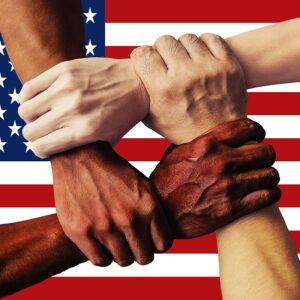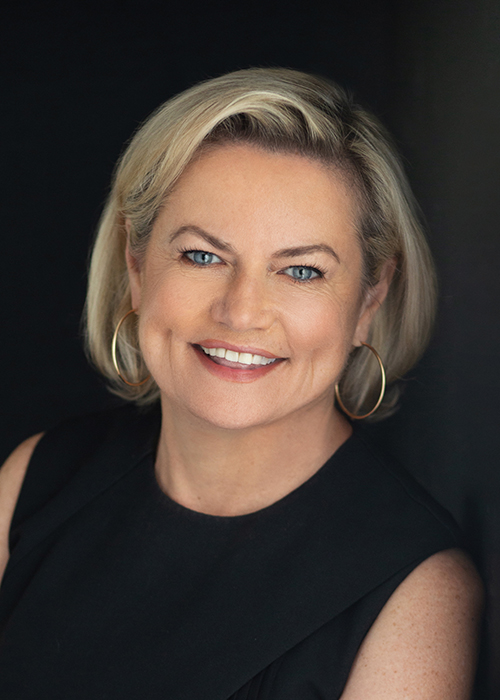October has offered a unique opportunity to pause and reflect on the challenges and possibilities facing our young people. Earlier this month, the celebration of Youth Confidence Day reminded us that confidence is more than a personal attribute and is the foundation for leadership, resilience, and agency. National Civics Day, also in October, invites us to consider the role of civic engagement in shaping informed, active citizens. Together, these observances raise the critical question of how we can help young people develop both the self-assurance and civic grounding they need to navigate an increasingly uncertain world.
Confidence among young people is under pressure. Studies show that many students and young adults experience rising anxiety and declining trust, especially in political institutions. Economic instability, rapid technological change, and political polarization all contribute to a sense of uncertainty about the future.
In this turbulent climate, mentorship and guidance are more important than ever. Young people need role models who demonstrate not only professional competence but also civic responsibility and resilience. Confidence, after all, is nurtured in communities that see and support their growth.
Civic engagement is a powerful way to build that confidence. National Civics Day emphasizes the importance of understanding government, policy, and public life, but civic learning extends far beyond memorizing historical facts. Civic engagement instills a sense of belonging and purpose. When young people see that their voices matter, that they can influence their communities, their self-assurance grows in tandem with their sense of responsibility.
Efforts like John Bridgeland’s More Perfect initiative exemplify the potential of civic education to empower the next generation. Coordinated with presidential libraries, the program seeks to inspire young people to connect with America’s history and democratic ideals in meaningful ways. By learning how past leaders navigated challenges, students gain perspective on their own capacity to lead and problem-solve. Initiatives like this remind us that civic knowledge is preparation for action, for contributing to the common good, and for thriving amid uncertainty.
As the nation approaches its 250th anniversary in 2026, the celebrations offer a powerful platform to reignite civic pride and participation. Across the country, communities are planning events that commemorate not only the founding of our democracy, but also the shared values and responsibilities that sustain it. If harnessed thoughtfully, America’s birthday can become a movement. By linking commemoration with civic renewal, we have the chance to inspire a new generation to see themselves as stewards of democracy, not just beneficiaries of it.
The convergence of Youth Confidence Day, National Civics Day, and America’s 250th anniversary presents a trifecta of opportunities to celebrate where we’ve been, invest in who we’re becoming, and build habits of thoughtful and authentic engagement.
Beyond these events, young people need skills to navigate the complexities of modern life. Adaptability, resilience, financial literacy, critical thinking, and civic curiosity are all essential. Mentorship programs, community engagement, and real-world experiences provide a scaffold for building these abilities. When adults (parents, educators, business leaders, and policymakers) invest time in guiding and supporting young people, they help them develop the confidence to take risks, learn from setbacks, and pursue opportunities with purpose.
This dual focus on personal and civic confidence is especially important today. Our society faces not only economic and technological disruption but also challenges to our social cohesion and trust in institutions. Helping young people understand how to participate constructively in civic life strengthens both their individual prospects and our collective resilience. Confidence and civic knowledge reinforce one another: empowered, informed young citizens are better equipped to tackle complex problems, collaborate across differences, and contribute meaningfully to their communities.
Adults can mentor students in their areas of expertise, encourage volunteerism and service projects, or facilitate conversations about public policy and social responsibility. Schools and community organizations can integrate civic education with experiential learning, helping students apply what they learn in tangible ways. Even small actions like inviting a young person to attend a local government meeting, discussing current events over dinner, or guiding them through financial and career decisions will leave lasting impressions.
In the end, investing in young people is an investment in the future. Confidence grows when young people feel seen, capable, and connected to something larger than themselves. Civic engagement flourishes when they understand that their actions can make a difference. By mentoring, guiding, and inspiring them, we strengthen not only their prospects but the resilience of our communities and our nation. This October, let us commit to helping young people develop the confidence and civic grounding they need to thrive in an unpredictable world, and, in doing so, help build a more empowered, more engaged, and more “perfect” society.


